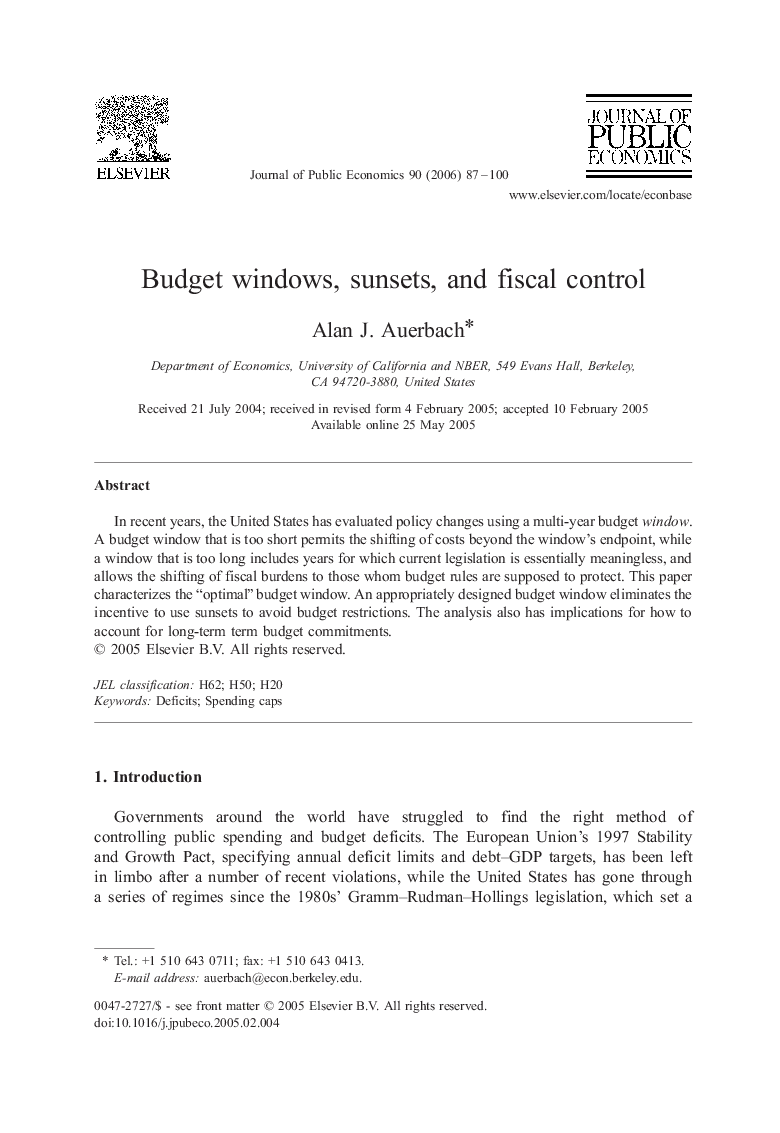| Article ID | Journal | Published Year | Pages | File Type |
|---|---|---|---|---|
| 969601 | Journal of Public Economics | 2006 | 14 Pages |
Abstract
In recent years, the United States has evaluated policy changes using a multi-year budget window. A budget window that is too short permits the shifting of costs beyond the window's endpoint, while a window that is too long includes years for which current legislation is essentially meaningless, and allows the shifting of fiscal burdens to those whom budget rules are supposed to protect. This paper characterizes the “optimal” budget window. An appropriately designed budget window eliminates the incentive to use sunsets to avoid budget restrictions. The analysis also has implications for how to account for long-term term budget commitments.
Related Topics
Social Sciences and Humanities
Economics, Econometrics and Finance
Economics and Econometrics
Authors
Alan J. Auerbach,
